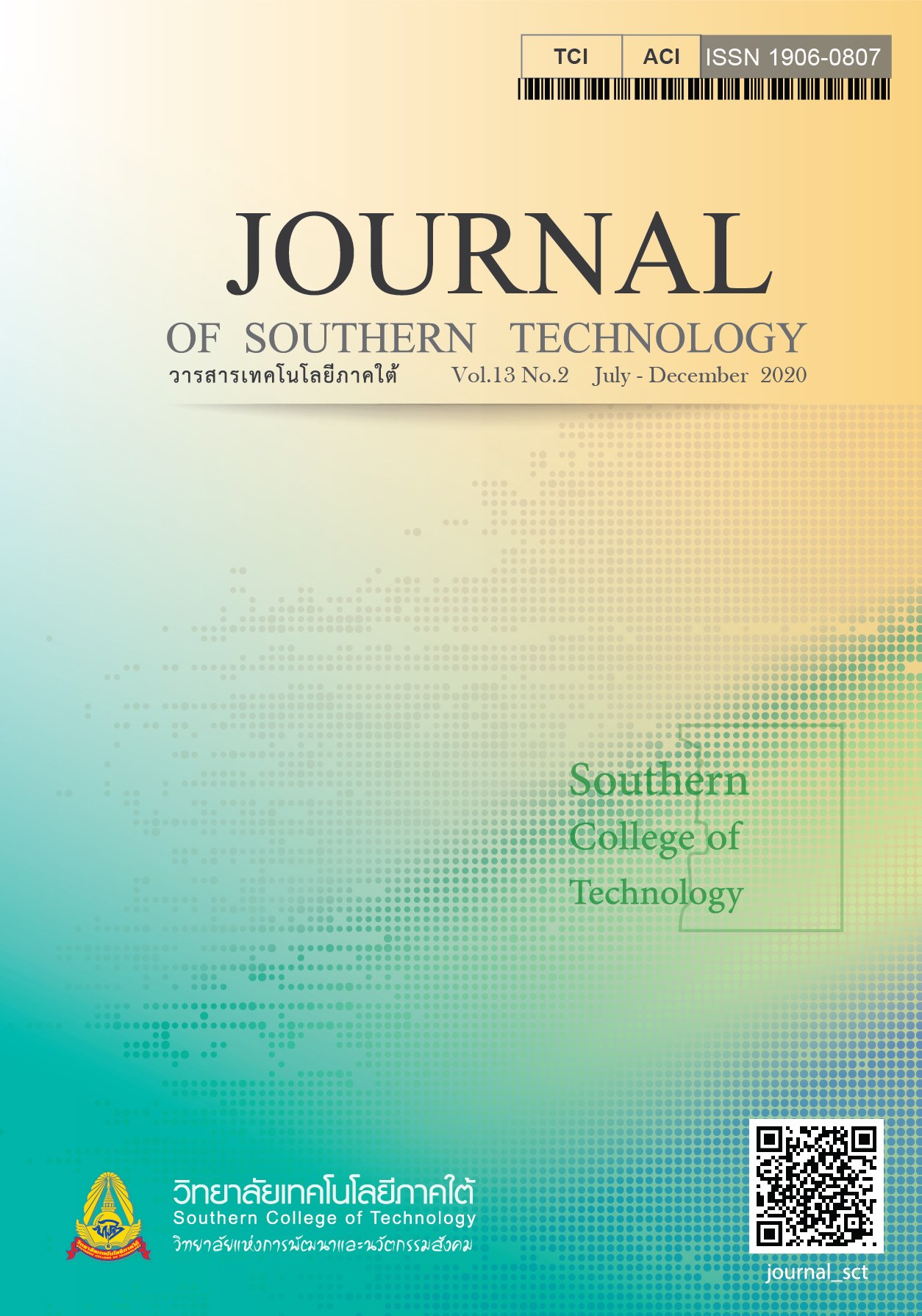Developing a Model for Alternative Energy Management that Supports Future Smart Grid Technology System in the Upper South
Main Article Content
Abstract
The purposes of this research were 1) to study integrated power management models of smart grid systems in the upper southern region and 2) to develop a management model of renewable energy sources to support future smart grid systems in the region. The researcher employed the qualitative research design by using EDFR Delphi technique to obtain information from brainstorming and suggestions of experts selected through purposive sampling. These include senior and experienced officers from Ministry of Interior, and Ministry of Energy. In-depth interviews were conducted to obtain data. Later the data were checked, and evaluated, in order to certify the management model of technological innovation, the future of hybrid smart grid systems.
The results revealed that (1) the management of alternative energy sources to support the future smart grid technology system in the southern region consists of energy management and the country's energy policy is an important tool in developing the country to achieve sustainability by defining production quantity on a daily basis in order to create appropriate planning of energy import and support for renewable energy. The government should have a policy to support renewable energy power plants such as wind power and solar power plants. This will offer insights for public energy management, promote justice and equity in energy access which provide solutions to the problems. The development of a renewable energy management model to support future smart grid systems in the upper southern region will be useful to all parties involved sustainably.
Article Details
-
Authors must agree to the journal publication rules and allow the editors to edit the manuscripts for publication.
-
Author’s right belongs to the author but Journal of Southern Technology holds the right of first publication and thus allow readers to use the article for the purpose of education but not commercial.
References
Ad-Sol Nissin Corp. (2017). Smart Grid and Future. Retrieved July 1, 2017, from http://www. adniss. jp/ en/ smartgrid
Chantavanich, S. (2009). Qualitative Research Methods. No.17. Bangkok: Chulalongkorn University Press. [in Thai]
Department of Alternative Energy Development and Conservation. (2017). Thailand Energy Report. Bangkok: Ministry of Energy. [in Thai]
Department of Alternative Energy Development and Energy Conservation. (2017). The Supply of Classified Energy. Source of Energy: 2017–2021. Retrieved March 25, 2017 from http://service. nso.go.th/ nso/nso_ cente r/project/ search_center. [in Thai]
Electricity Generating Authority of Thailand. (2017). ต้นแบบของการผลิตพลังงานแบบผสมผสาน. Retrieved July, 25, 2017, from https://www.egat.co.th/index.php?option=com_ content&view=article&id=1991:art20170526 &catid=49&Itemid=251 [in Thai]
Energy Policy and Planning, Ministry Office Energy. (2017). Today’s oil Prices Report the Petroleum Exploration Division Retrieved July 8, 2017 from http://www. eppo. go. th /retail_prices.html. [in Thai]
National Energy Policy Office. (2016). Energy Saving Program 2 Earnings Per. Bangkok: Bangkok Printing Works. [in Thai]
Provincial Electricity Authority. (2017). Purchase Order Electricity from Power Producers Renewable Energy Very Small. Bangkok: Electricity Capital. [in Thai]
Prasitrathasin, S. (2011). Research Methodology Social Sciences (12thed.). Bangkok: Fueng Fah Printing. [in Thai]
The Electricity Generating Authority of Thailand. (2017). Power Development Plan of Thailand, 2008-2564. Retrieved on 25 July 2017 from http://www.egat.co.th/images/stories/pdf/PDP2007Rev2-Mar2009-TH.pdf [in Thai]
Welsch, M, Howells, M., Rogner, H., & Bazilian, M. (2011). Smart and Just Grids: Opportunities for Sub‐Saharan Africa. Imperial College London, London.

